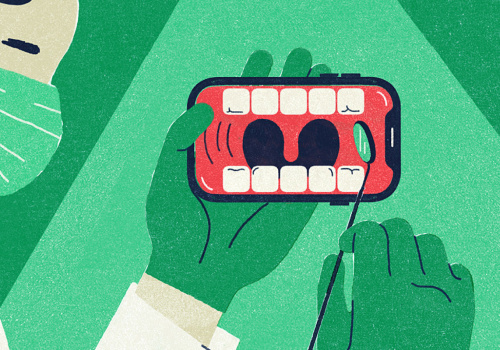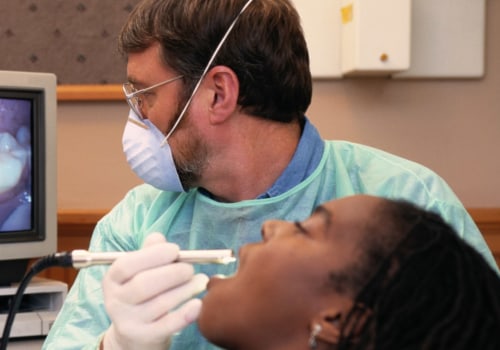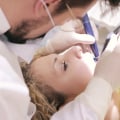We often wonder why kids visit the dentist. Well, let us tell you.
Pediatric dental visits are crucial for maintaining oral health. Regular check-ups help prevent dental issues and build lifelong habits for a healthy smile.
In this article, we explore the reasons behind these visits and highlight the importance of dental care for children.
So, join us as we delve into the world of pediatric dentistry and discover why kids go to the dentist.
TLDR
- Pediatric dental visits are important for early detection and prevention of dental issues.
- Regular check-ups help children develop good oral hygiene habits and prevent dental diseases.
- Dentists provide personalized advice on dental hygiene and offer oral health education.
- Early intervention during dental visits prevents the progression of cavities and promotes dental health awareness.
Reasons for Pediatric Dental Visits
When it comes to pediatric dental visits, there are two main reasons why kids go to the dentist: early detection and prevention, and establishing good oral hygiene habits.
Regular dental check-ups allow dentists to identify any potential issues early on, such as cavities or misaligned teeth, and take necessary preventive measures.
Additionally, these visits help children develop good oral hygiene habits, including proper brushing and flossing techniques, which are essential for maintaining optimal dental health.
Early Detection and Prevention
We should schedule regular dental check-ups for our children to ensure early detection and prevention of any potential oral health issues. By taking our children to the dentist at a young age, we can establish a foundation of good oral hygiene habits and promote dental health awareness.
Here are the key benefits of early detection and prevention:
- Oral health education: Dentists can provide valuable information on how to maintain proper oral hygiene and prevent dental diseases.
- Dental disease prevention: Regular check-ups help identify and address any signs of dental diseases, such as tooth decay, early on.
- Dental hygiene tips: Dentists can offer personalized advice on brushing techniques, flossing, and other dental hygiene practices.
- Cavity detection: Early intervention can prevent the progression of cavities and the need for extensive dental treatments.
Through preventive dentistry and pediatric dental care, we can safeguard our children's oral health, ensuring a lifetime of healthy smiles.
Establishing Good Oral Hygiene Habits
By consistently reinforcing the importance of proper oral care and providing guidance, parents can help their children develop good oral hygiene habits, ensuring their long-term dental health.
Teaching children the correct brushing techniques is crucial to remove plaque and prevent cavities. Parents should also educate their kids on flossing tips to clean the areas that a toothbrush can't reach.
Limiting sugar consumption is essential for maintaining healthy teeth, as sugar promotes tooth decay. Introducing dental tools like toothbrushes, toothpaste, and dental floss early on can make oral care routine for children.
Furthermore, parents should understand the benefits of fluoride in preventing tooth decay and consider dental sealants to protect their children's teeth from cavities. Using appropriate dental care products and mouthwash can also contribute to good oral hygiene.
Encouraging teeth-friendly snacks and emphasizing the importance of regular dental cleanings are additional steps parents can take to establish good oral hygiene habits in their children.
Importance of Regular Check-ups
Regular check-ups are vital for maintaining dental health and preventing potential issues. During these visits, dentists not only examine the teeth and gums but also provide educational guidance on proper oral hygiene practices.
This helps children develop good habits and understand the importance of taking care of their teeth, leading to long-term dental health and overall well-being.

Dental Health Maintenance
One of the most important aspects of maintaining good dental health is scheduling regular check-ups with our dentist. These check-ups play a crucial role in preventing tooth decay and ensuring a healthy smile for our children.
Here are four reasons why regular dental check-ups are important:
- Dental cleanings: Regular cleanings help remove plaque and tartar buildup, preventing gum disease and cavities.
- Cavities treatment: Early detection of cavities allows for prompt treatment to prevent further damage.
- Fluoride treatments: Fluoride helps strengthen tooth enamel and prevent tooth decay.
- Dental sealants: Sealants protect the molars from decay by creating a barrier against bacteria.
By conducting X-rays for children, dentists can identify any orthodontic concerns early on and address them appropriately. They can also provide guidance on addressing thumb sucking habits, ensuring proper baby teeth care, and managing teething issues.
Regular check-ups are crucial for maintaining optimal dental health and addressing any potential concerns before they become more serious.
Educational Guidance
We understand the importance of regular check-ups for our children's dental health and how these visits provide valuable educational guidance. Parental involvement plays a crucial role in ensuring that children receive proper oral health education and age-appropriate treatments. Dental anxiety is a common concern among children, but pediatric dental specialists are trained to address these fears and create a comfortable environment. Preventive dentistry, such as dental sealants and fluoride treatments, can protect children's teeth from decay and cavities. It is important to remember that baby teeth play a significant role in speech development and proper jaw growth, emphasizing the need for regular check-ups. Additionally, maintaining a healthy diet is essential for overall oral health. By prioritizing regular check-ups, parents can ensure their children receive the necessary guidance for maintaining a healthy smile.
| Key Points | |
|---|---|
| Parental involvement | Ensures proper education and treatment. |
| Dental anxiety | Addressed by pediatric dental specialists. |
| Preventive dentistry | Dental sealants and fluoride treatments are essential. |
| Baby teeth importance | Crucial for speech and jaw development. |
| Healthy diet | Essential for overall oral health. |
Building Lifelong Dental Health
When it comes to building lifelong dental health, it's crucial to introduce children to dental care at an early age. By setting the foundation for good oral hygiene habits, parents can instill a sense of responsibility and ensure that children understand the importance of taking care of their teeth.
This early introduction can have a lasting impact and lay the groundwork for a lifetime of healthy smiles.
Early Introduction to Dental Care
As parents, we should prioritize the early introduction of dental care to ensure the building of lifelong dental health for our children. By instilling good oral hygiene habits early on, we can help them maintain healthy teeth and gums throughout their lives.
Here are four key reasons why early dental care is crucial:
- Dental education: Teaching children about the importance of oral health and proper dental care sets the foundation for a lifetime of good habits.
- Preventive care: Regular dental check-ups and cleanings can help prevent tooth decay and other oral health issues.
- Baby teeth: Taking care of baby teeth is essential as they serve as placeholders for permanent teeth and contribute to proper speech and chewing.
- Dental anxiety: Early dental visits can help alleviate dental anxiety, ensuring that children feel comfortable and confident in the dental chair.
Setting the Foundation
To build lifelong dental health, parents must establish a strong foundation by consistently prioritizing oral hygiene for their children. This foundation includes addressing key factors such as dental anxiety, parental involvement, and oral health education. Creating a child-friendly environment at home and at the dentist's office can help alleviate dental phobia and make dental visits more comfortable for kids. Teaching proper brushing techniques and emphasizing the prevention of tooth decay through regular brushing and flossing is crucial. Dental sealants can also be applied to protect vulnerable areas from decay. Additionally, parents should be aware of developmental oral issues and understand the importance of baby teeth in the overall oral health of their children. By setting the foundation early on, parents can ensure their children have a lifetime of healthy smiles.
| Key Factors | Importance |
|---|---|
| Dental anxiety | Addressing fear and creating a comfortable environment can ease dental visits for children. |
| Parental involvement | Active participation in oral hygiene routines helps establish good habits and promotes oral health. |
| Dental phobia | Providing a supportive environment can help overcome dental fears and anxieties. |
| Oral health education | Teaching children about proper oral hygiene practices and the importance of dental care is essential. |
| Child-friendly environment | Creating a welcoming and friendly atmosphere at the dentist's office can make dental visits more enjoyable. |
| Proper brushing techniques | Teaching children the correct way to brush and floss their teeth helps maintain good oral hygiene. |
| Prevention of tooth decay | Emphasizing regular brushing, flossing, and a healthy diet can prevent tooth decay and cavities. |
| Dental sealants | Applying dental sealants can protect vulnerable areas of the teeth from decay. |
| Developmental oral issues | Being aware of and addressing any developmental oral issues ensures proper growth and development of teeth and jaws. |
| Importance of baby teeth | Baby teeth serve as placeholders for permanent teeth and play a crucial role in speech development and proper chewing. |
Frequently Asked Questions
At What Age Should a Child Have Their First Dental Visit?
Early intervention is key. We should prioritize dental visits for kids to address dental anxiety, promote oral hygiene, monitor dental milestones, and educate about preventive care. Baby teeth play a crucial role, and dental professionals can guide parents. Dental insurance helps alleviate costs.
How Often Should a Child Visit the Dentist for Check-Ups?
Regular dental check-ups are important for children to maintain good oral health. These visits help establish dental hygiene routines, prevent dental issues through early interventions, address dental anxiety, provide oral health education, and administer fluoride treatments and dental sealants. Additionally, they emphasize the importance of nutrition and dental health, including the care of baby teeth.
What Are Some Common Dental Problems That Children May Face?
Preventive care is crucial for kids' dental health. Common problems include cavities, tooth decay, gum disease, orthodontic issues, dental injuries, and tooth loss. Maintaining good oral hygiene helps prevent these issues and reduces tooth sensitivity. Addressing dental anxiety is also important.
How Can Parents Help Prepare Their Child for a Dental Visit?
To prepare your child for a dental visit, we can help alleviate dental anxiety through distraction techniques and role-playing games. Choosing a pediatric dentist, positive reinforcement, and explaining procedures create a comfortable environment while managing fear of the unknown. Reading dentist-themed books and encouraging good oral hygiene habits are also helpful.
Are There Any Specific Dental Health Recommendations for Infants and Toddlers?
Dental hygiene for infants includes addressing teething troubles, bottle feeding's impact on dental health, and managing thumb sucking and pacifier use. Starting an oral care routine with the first toothbrush and toothpaste is crucial. Baby teeth are important, and preventing cavities in toddlers involves fluoride and choosing the right dentist.







